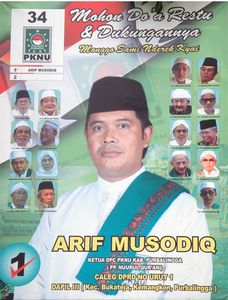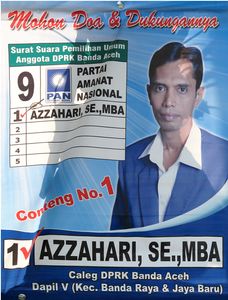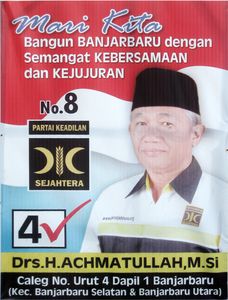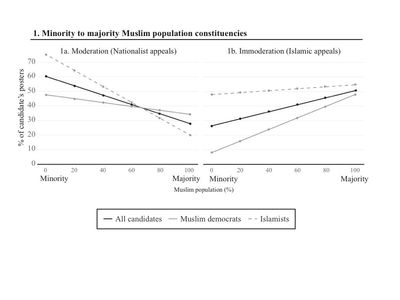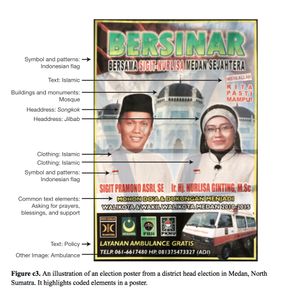Menchik Uses Campaign Advertisements as Data
Riding around on the back of a motorcycle in 2009, Assistant Professor of International Relations at the Frederick S. Pardee School of Global Studies Jeremy Menchik snapped photos of hundreds of Indonesian campaign posters. That number has now grown to over 10,000 images, which Menchik and his co-author Colm Fox have painstakingly coded and analyzed to better understand the politics of identity in Indonesia.
Election poster campaigns are the most prominent form of campaign advertising in Indonesian elections. These posters are usually large, colorful, featuring a large image of a candidate dressed in a suit, Islamic, or indigenous clothing, and packed with emotive messages, symbols, and images. Posters can also have an impact. Election posters affect voting behavior by raising name recognition, signaling competitiveness, and increasing participation.
In a recent paper presented at the International Studies Association, Menchik and Fox undertook quantitative content analysis from election posters of over 750 Indonesian candidates from Islamic political parties in order to map the conditions under which they make moderate or immoderate appeals. Explaining why Islamic parties moderate is important for understanding the conditions that drive radical movements to moderate rather than undermine democratic institutions.
They find that party ideology, demographics, urban/rural differences, and level of government drive candidate behavior. This finding demonstrates the conditions that drive moderation and immoderation, and suggests a new data source and new opportunities for studying the conditions under which anti-system parties will challenge democratic values or help to make democracy work.
Jeremy Menchik is an Assistant Professor in the Frederick S. Pardee School of Global Studies at Boston University. His first book, Islam and Democracy in Indonesia: Tolerance without Liberalism (Cambridge University Press, 2016) explains the meaning of tolerance to the world’s largest Islamic organizations and was the winner of the 2017 International Studies Association award for the best book on religion and international relations. He has received numerous awards and fellowships for teaching and research, and his work has appeared in the academic journals Comparative Studies in Society and History, Comparative Politics, International Studies Review, Politics and Religion, Asian Studies Review, and South East Asia Research as well as in The New York Times, The New York Review of Books, The Washington Post, Christian Science Monitor, The Wall Street Journal, and USA Today.
